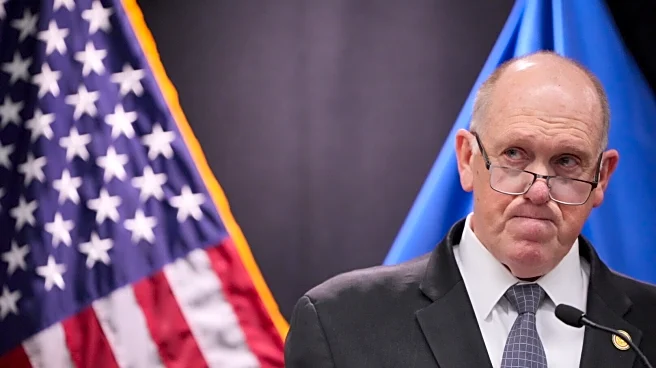What's Happening?
The U.S. Supreme Court has declined to take up a case challenging its 2015 decision in Obergefell v. Hodges, which legalized same-sex marriage nationwide. The challenge was brought by Kim Davis, a former
Kentucky clerk who refused to issue marriage licenses to same-sex couples, citing religious objections. Davis's appeal sought to overturn the ruling and avoid paying damages to a couple she denied a license. The court's decision to not hear the case reaffirms the constitutional right to same-sex marriage, maintaining the legal framework established by Obergefell.
Why It's Important?
The Supreme Court's decision to uphold the Obergefell ruling is a critical affirmation of marriage equality in the United States. It ensures that same-sex marriages remain legally recognized and protected, providing stability and certainty for LGBTQ+ individuals and couples. This decision also highlights the ongoing tension between religious liberty claims and civil rights, as Davis's case was rooted in religious objections. The court's refusal to hear the case suggests a commitment to maintaining established legal precedents, which could influence future civil rights cases.
What's Next?
Despite the Supreme Court's decision, challenges to same-sex marriage rights may continue at the state level. Some states have introduced bills or resolutions opposing the Obergefell decision, and religious liberty arguments may persist in legal and political arenas. The Respect for Marriage Act, which provides federal protection for same-sex marriages, remains a crucial safeguard. Advocacy groups and legal experts will likely continue to monitor and respond to any state-level actions that could impact marriage equality.












